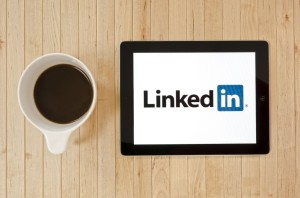Your #Career : What #Recruiters Pay Attention To When They Look At Your #SocialMedia …Great REad!
You probably already know recruiters are looking at your LinkedIn page, but what about your other social media platforms? You know, the ones where you post pictures of your latest vacation, share what you had for dinner and occasionally tag your friends in memes. Why, you might wonder, would a recruiter possibly be interested in viewing things like that?
As it turns out, those personal details are precisely why recruiters and hiring managers keep tabs on applicants’ social media accounts, says career coach Hallie Crawford. “It can help them get a more accurate idea about who you are outside of your resume–a more personal view into your life,” she explains. “A resume can tell them your qualifications, but your social media profile can help them determine your personality type and if you would be a good fit for company culture.”
Related:How To Tidy Up Your Digital Footprint Before Your First Job Search
Plus, recruiters are looking for red flags–risqué photos, bad language, signs of drugs use–that would show them you’d be a less than ideal man or woman to have in their offices.
So now that you know why they’re looking, how about knowing what they’re looking at?
According to Crawford, recruiters and hiring managers are concentrating their efforts on two sections of your Facebook page–your “about me” section, and your photo albums.
About Me: “They will want to see how you describe yourself and if it matches up [fusion_builder_container hundred_percent=”yes” overflow=”visible”][fusion_builder_row][fusion_builder_column type=”1_1″ background_position=”left top” background_color=”” border_size=”” border_color=”” border_style=”solid” spacing=”yes” background_image=”” background_repeat=”no-repeat” padding=”” margin_top=”0px” margin_bottom=”0px” class=”” id=”” animation_type=”” animation_speed=”0.3″ animation_direction=”left” hide_on_mobile=”no” center_content=”no” min_height=”none”][with] how you have described yourself in your cover letter and resume,” Crawford says. Any discrepancies could cost you points pre-interview. What’s more, Crawford says, “they will also be looking for proper spelling and grammar” in this section, to see how seriously you take those skills.
Photos: When it comes to your photos albums, “a hiring manager will be checking not only your photos but also your descriptions,” Crawford warns. “A hiring manager wants to see if you represent yourself in a professional way.” To come off in the most positive pre-meeting light, “you will want to avoid using profanity, sexual or drug references,” Crawford says.
Related:Here’s How To Use Social Media At Every Stage Of Your Career
Like this Article? Share It ! You now can easily enjoy/follow/share Today our Award Winning Articles/Blogs with Now Over 2.5 Million Growing Participates Worldwide in our various Social Media formats below:
FSC LinkedIn Network: www.linkedin.com/in/fscnetwork
Facebook: http://www.facebook.com/pages/First-Sun-Consulting-LLC-Outplacement-Services/213542315355343?sk=wall
Google+: https://plus.google.com/115673713231115398101/posts?hl=en
Twitter: Follow us @ firstsunllc
Question: Want the ‘the best/current articles/blogs on the web’ on Job Search, Resume, Advancing/Changing your Career, or simply Managing People?
Answer: Simply go to our FSC Career Blog below & type(#career, #leadership, #life) in Blog Search:https://www.firstsun.com/fsc-career-blog/
What Skill Sets do You have to be ‘Sharpened’ ?
Continue of article:
Who You’re Following: “Recruiters like to see if you have any mutual connections and if you are connected with others in your industry,” Crawford explains. Following others in your industry is a smart thing to do no matter what–watching their feeds can give you a scoop on a new job opening, company announcements, the latest tech and much more.
Tweets: “Recruiters will be checking to see if you share useful information, if you share information relevant to your trade or if you just use tweets to fight with others,” Crawford says. If you’re applying for a job, take a look at your tweeting history and consider deleting anything that won’t show your best–and most thoughtful self to a potential employer.
Related:This Is What Recruiters Look For On Your LinkedIn Profile
Followers: Recruiters will check out the kind of followers you attract, Crawford says. Plus, they’ll want to see “how friendly and social you seem to be with your followers,” she says. What you say to them and what you say back, she explains, “can also give them insight [into] your personal relationships and if you would be a good cultural fit for the company.”
Pictures: You probably figured this, right? But recruiters are looking to see more than your photography skills (or lack thereof). “They will want to see how you represent yourself,” Crawford says. For example, “if you are at a party, do you represent yourself in a dignified way?” Crawford asks, or, “do you post things that others would consider inappropriate?”
This article originally appeared on Glassdoor and is reprinted with permission.
FastCompany.com | March 26, 2018 | BY JILLIAN KRAMER—GLASSDOOR 3 MINUTE READ
[/fusion_builder_column][/fusion_builder_row][/fusion_builder_container]



